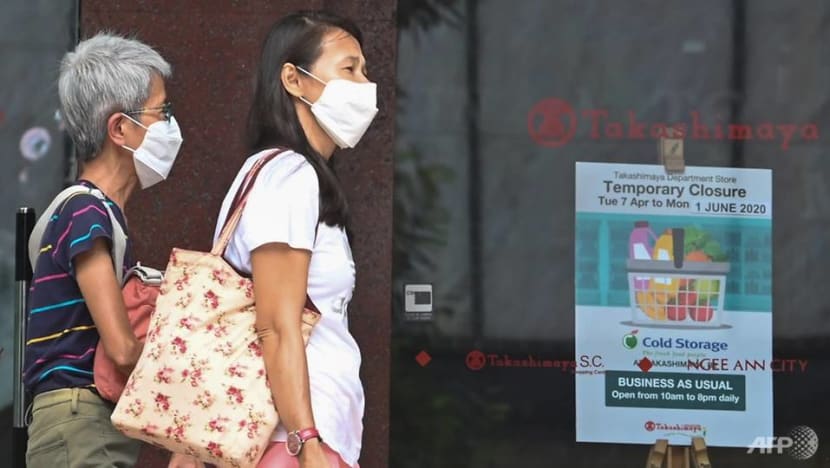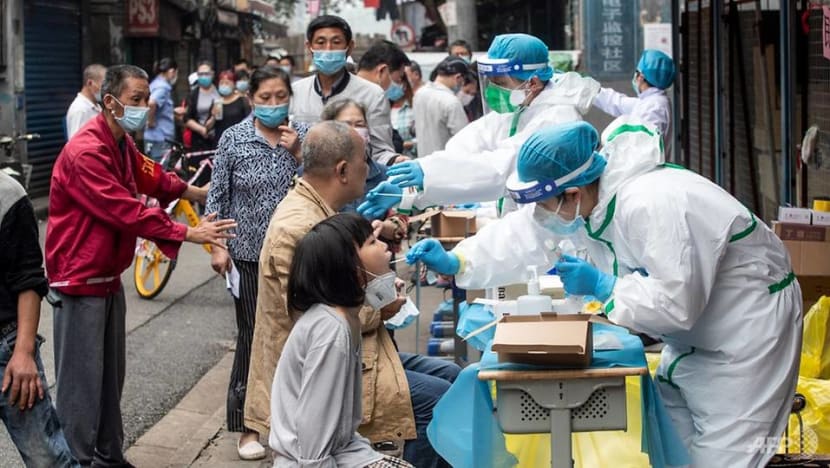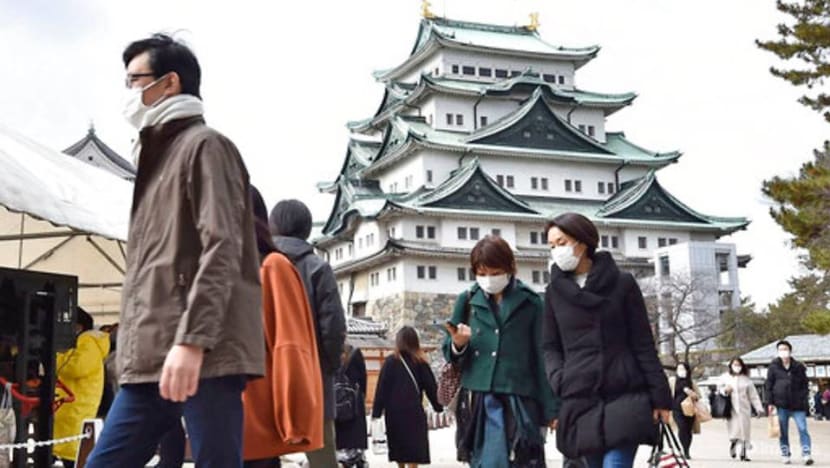commentary Commentary
Commentary: COVID-19 brought out the best in us. But we paid too steep a price to figure it out
This pandemic has shown how humanity can be extraordinary and incredibly brave. That ingenuity needs to be applied to climate change, says James Carouso.

People wearing face masks walk past a closed retail mall along the Orchard Road shopping belt in Singapore on May 6, 2020. (Photo: AFP/Roslan Rahman)
SINGAPORE: “There’s only one thing you can count on,” long-time US presidential adviser and Secretary of Defense Robert Gates told newly elected President Obama. “On any given moment in any given day, somebody, somewhere is screwing up.”
We all know this statement is true. We just often hope we are not the somebody in question.
So it is something of a miracle that in our highly complex, globally integrated, just-in-time world, we have managed to come through the COVID-19 pandemic as well as we have.
This is not in any way to minimise the horrific suffering of the 1.5 million who have died and more than 67 million who were infected.
Nor the immense economic damage done to every nation as the measures to combat the disease involved the temporary shutdowns of large segments of the global economy.
READ: IN FOCUS: After COVID-19, where are the Singapore economy, workforce headed?
READ: Commentary: Even in a recession, lowballing job seekers is not only poor form but also poor strategy
A YEAR OF TERRIBLE LOSSES
All our lives have been constrained, limited, disrupted and many of us have suffered terrible personal and financial loss.
And certainly people and governments have been screwing up on COVID-19 all over the world.
From Wuhan suppressing information about the initial outbreak, to WHO and other authorities not promoting wearing masks early on and getting it eventually wrong as policymakers entrusted with precious lives, regardless of the prevailing scientific advice, to the on-going COVID-19 denialism and associated leadership failure of Donald Trump, the pandemic did not have to be as bad as it turned out.

Even Singapore, which has largely managed its response so well, could have foreseen and better managed the outbreak in the foreign worker dormitories when it first emerged.
BRAVERY OF HEALTHCARE WORKERS
But looking through the gloom, you can make out the attributes that have allowed humanity to thus far survive previous pandemics, famines, natural disasters, as well as man-made catastrophes such as wars and other mass stupidity.
Foremost is the bravery and devotion to duty of the world’s healthcare workers.
Working incredible hours and wearing hot, heavy personal protective gear, on some days it seemed the unprecedented flow of patients would never stop, and, despite their best efforts, the results would so often be devastating.
Meanwhile, they had to manage concerned family members who could not give comfort or say goodbye to their loved ones.
READ: Commentary: Making sense of shifting goalposts in public policy and the science of COVID-19
READ: Commentary: A vaccine is on the horizon. But most Singaporeans are adopting a wait-and-see attitude
The physical and psychic toll was immense as they put their own personal safety at risk every day and had to worry that they might bring the virus home to their own families.
EXTRAORDINARY RESEARCHERS
Next on my list of extraordinary responders are the researchers – whether at pharmaceutical companies, government labs or private institutions – who through hard work, disciplined science and sheer brilliance, have apparently developed several anti-coronavirus vaccines and improved treatments in a matter of months.
This demonstrates what we as a species can accomplish given sufficient resources and focus.
Our technological tools such as gene editing, artificial intelligence running on supercomputers with access to enormous databases, and a new understanding of the role of RNA in a virus builds on our shared history of technological and scientific advancement.
READ: Commentary: How COVID-19 has forced employers to be more human – and rewards them in the process
THE REST OF US ADJUSTING TO THE NEW NORMAL
And the rest of us have carried on. Whether through inertia or force of will, we have found ways to adjust to this “new normal”.
For long periods of time we have confined ourselves to our homes, home-schooled our children, forgone the simple pleasures of seeing our extended family and friends, worn masks and practised hyper-hygiene.
In a Darwin-esque fashion, those societies that as a whole failed to be so disciplined have suffered more severe consequences.

Most of us will come through this trial by nature with only emotional and financial scars, and human history will march on.
One hundred years from now the Covid-19 pandemic will be as dim and distant a memory as the 1918 Spanish flu was to us in 2018.
CLIMATE CHANGE THE NEXT CHALLENGE WE MUST GET RIGHT
Hopefully our resilience, perseverance and ingenuity can now be focused on what scientists tell us is the next great global threat to our species – climate change.
COVID-19 reminded us that we are still much weaker than the forces of nature and it will take concerted action by everyone to limit the damage. We can’t deny the facts any longer.
A key lesson is that early and informed action can reduce human suffering. NASA scientists predict “Increased heat, drought and insect outbreaks, increased wildfires.
READ: Commentary: Save forests or build 4-rooms? It’s not a zero-sum game
Declining water supplies, reduced agricultural yields, health impacts in cities due to heat, and flooding and erosion in coastal areas” all from climate change.
We have paid a steep price to learn the lessons from COVID-19.
Hopefully, we can apply our new knowledge and rediscovered awareness of the power of nature to limit climate change before the tuition costs rise even further. We really can’t afford to screw this up.
Listen to an expert discuss why conserving forests and mangroves is critical to our fight against climate change:
James Carouso, a former US diplomat, is the managing director of BowerGroupAsia, Singapore.














